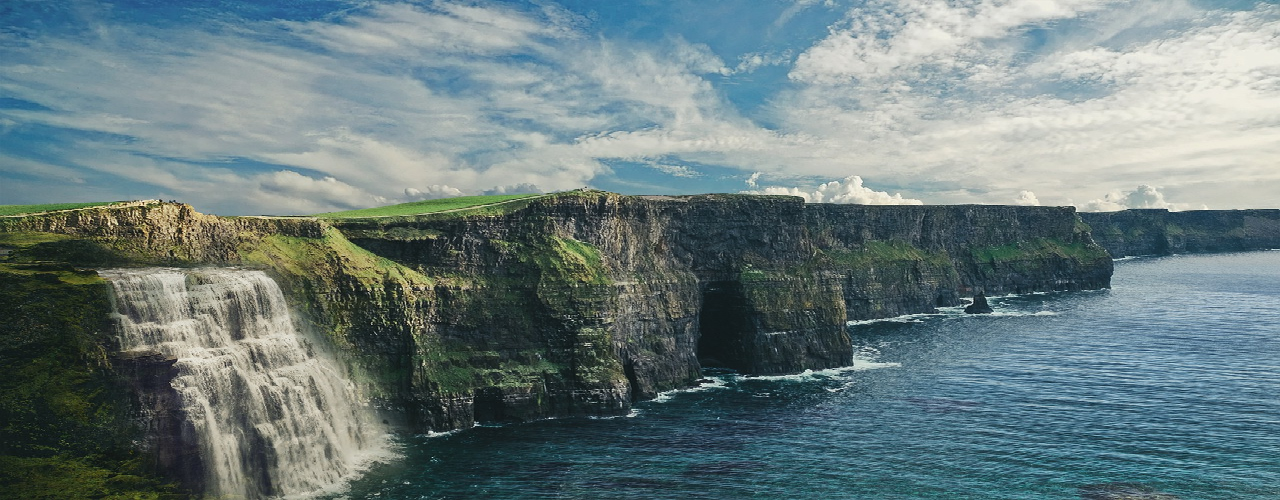
Astoria
Chaya - Spring of 499 AD
Astoria is the world that exists just across the veil from our own. Its time period bears strong similarities to 16th Century Europe; specifically, the late Renaissance in terms of science. That is where the resemblance stops. Where our world chose to pursue science, theirs pursued the magical arts. Magic is the life-force of Astoria, and is considered a gift of the gods to the peoples. It’s high-fantasy at its finest: with magical collegiates, kingdoms rife with political intrigue, fantastical beasts (including races such as elves, dwarves, and orcs), divine Orders and their very real pantheon of deities, and the adventurers our duo stumble across, who help maintain status quo and assist the common folk.
The realm of Astoria has been in a state of unrest, seeds planted at The Desolation (an infamous, earth-shattering calamity from nearly 500 years ago) starting to bear fruit.
Time Period: 499 A.D. (After Desolation but their world has been around for many thousands of years. The time period bears strong similarities to 16th Century Europe; specifically, the late Renaissance in terms of science. Where late Renaissance saw the beginnings of the Scientific Revolution and the period known as the Enlightenment, Astoria underwent a similar change in the Magical Restoration, fully embracing their fantastical capabilities and the wonders it would help them achieve.
Geography: Astoria is the equivalent to a continent. Others exist, but will not be featured heavily (or at all) in the course of the story. The majority of it consists of forests, grasslands, and marshes, though a desert sprawls over its southeastern edge. There are political and natural divisions, resulting in a couple of countries/city-states and a giant neutral zone (generally inhabited by monsters), but the one the story will be revolving around is the kingdom of Empior.
Religion: Religion is an integral part of life in Astoria, and is one of the most influential factors in macro and micro population behavior. There is a whole pantheon of deities, each with their history and web of relationships with other deities. They are similar to Greek/Roman gods in that they are incredibly human in their personalities and interpersonal behavior, but are generally more benevolent and inclined to help those invoking their name. They are immortal, but are able to be killed, which accounts for the shifts of power and positioning in their ranks. People understand the sanctity of each other’s’ revered gods, even if they don’t share the same ones. “Atheists” are extremely rare due to common acceptance of at least one or more of the gods. Religious conflict tends to stem from personal feuds between gods carried out by followers, internal disagreements within churches over dogma, or, quite often, radical occult groups pushing their own agendas. Not all regions or races worship the same gods or even use the same names; but the 1st tier of deities, The Ancients, are almost universally recognized.
Government: As mentioned, Astoria consists of different countries/city-states, and no form of government act exactly the same. Empior, specifically, is a kingship. However, for the past few generations the king has been (privately) regarded as more of a figurehead as anything else, and the power has resided with his council of advisors (typically noblemen, with ties to varying churches or collegiates) each with conflicting ideas on how the kingdom should be run. Some genuinely wish to make Empior prosper, but others have more selfish intentions, and merely wish to accumulate power. This unofficial oligarchy is standard for Empior’s other big cities, but to the outside world, with whom Empior consistently trades, the king still holds all the power.
Relevant History: Astoria has seen its fair share of wars, rebellions, revolutions; all of which helped determine borders, the attitudes and ideals of her peoples, as well as those in other continents, but none was more profound than The Desolation. The war of the Dragon Lordes had moved beyond the celestial plane to wreak havoc upon the denizens of Astoria. In the span of a week, the Eastern Isles, the Havens of Doloroth, and the Ironwood Kingdom were decimated by the warring gods. Elf, dwarf and human alike went up in flames; but elves suffered the worst of it. Of the few that survived, most were driven to insanity by sheer grief, and of those left, their birth rates simply could not compensate for the loss of life. They were forced to leave their homes; either to integrate with the mostly-human populations, or to join their kin in other lands. The ruined, forsaken lands regrew, but twisted, and now exist as the birthing grounds of monsters and creatures that do not bear mention; still haunted after over a thousand years have passed. Only the bravest, or perhaps foolish, of adventurers dare wander there.
Out of the Ordinary: Magic is the life-force of Astoria, and is considered a gift of the gods to the peoples. The more gifted are sent to institutions (such as the Collegiate of Magics) in order to fine-tune their inherent abilities, but those that can wield magic with notable power are rare, and such people often cannot reach their full potential due to strict precautionary rules.
Who are Adventurers: Adventurers, or heroes, depending on who you ask, are those that have risen above the ordinary to meet a calling. Some seek fame, fortune, knowledge, or even a good thrill, but others, either from the goodwill of their hearts or from divine influence, only wish to serve others in their travels. The common folk look to adventurers to protect them from the evil denizens and monsters that roam the land; but even these heroes are not immune to mortal fallibility. They have their own power struggles and intrigues that inevitably intertwine with the politics around them.
